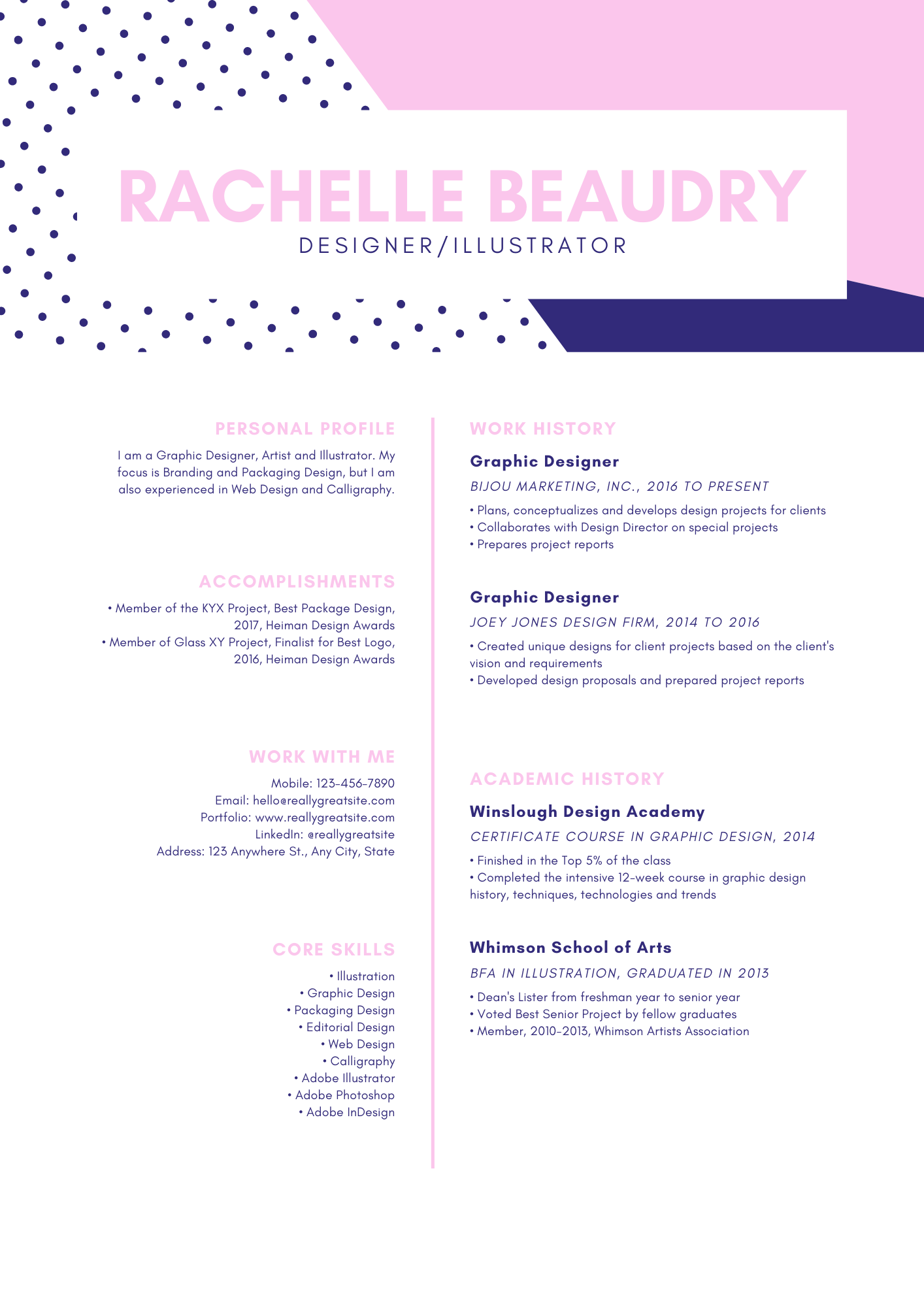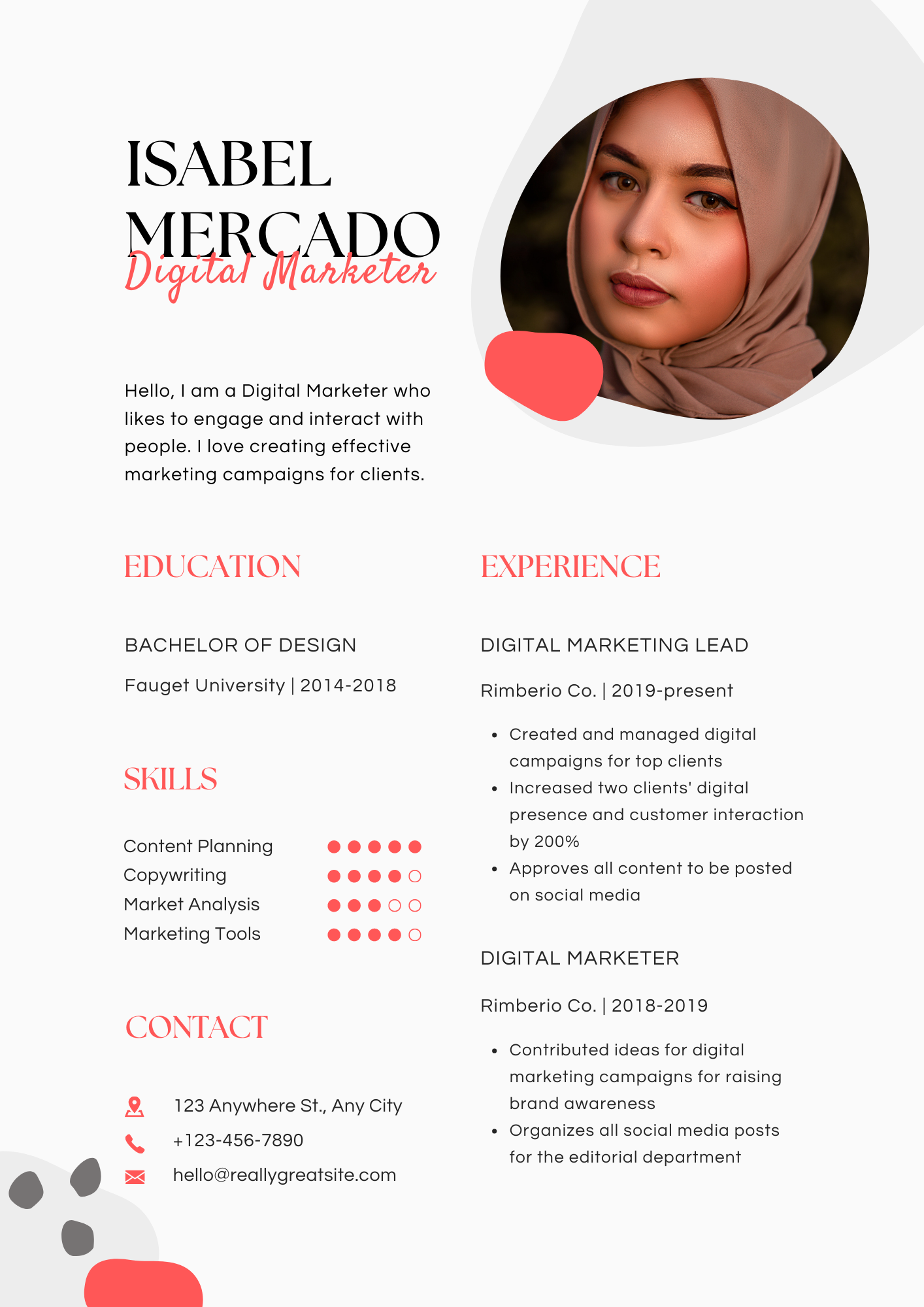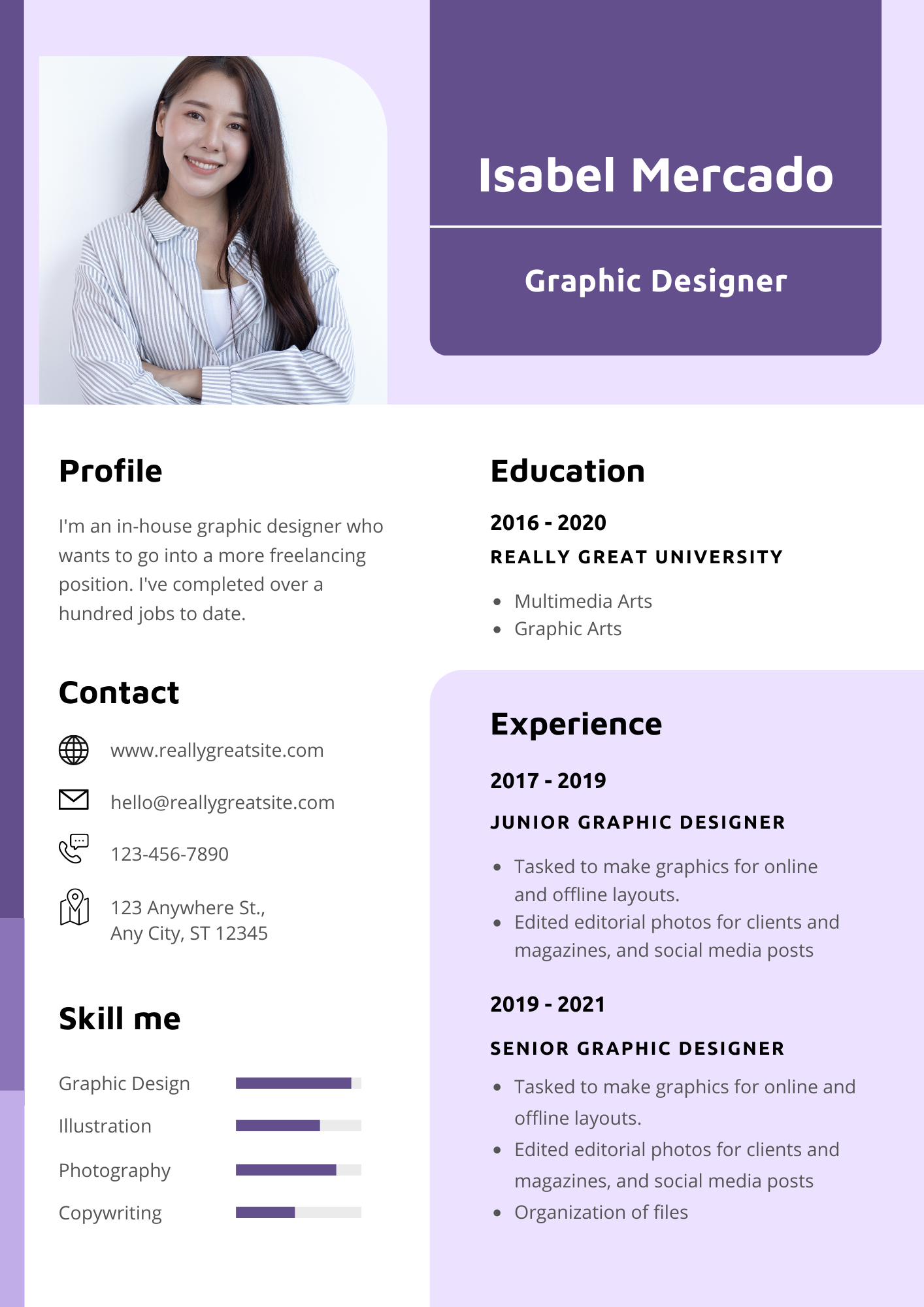The Billie guide to landing your first job.
So the time has come for you to enter the workforce - congrats this is your first step to becoming an adult!
Having a part time job while you’re at school is a great way to dip your toe into the pool of employment which brings with it responsibilities, skills and of course money!
However nailing down a job for the first time is super hard when you’ve had no previous experience in the workforce.
Although it’s difficult, it’s not impossible! Billie has been there done that and now has some hot tips for you in landing your first job!
Sort out a CV/Resume.
Before you do anything, you need to get yourself a kick-ass CV!
Back in my day, we used to create a very plain looking word doc that looked sad as hell but thankfully we have moved past that era. Honestly employers are getting a tonne of CV’s so you want yours to stand out.
Say hello to Canva - this bad boy is your new best friend for creating a chic, professional CV that is sure to stand out. Canva offers a range of free ‘resume’ templates that you can easily fill in with your own info and customise colours and styles.
Once you have chosen the style you like best, it’s time to fill it out.
Filling out a CV can be difficult when you have no former experience to list but that doesn’t mean it’s not important to have. A CV should be a humble brag about yourself and all the reasons you are unique.
Here are the four areas to show off why you should get the job despite having no experience:
Awards, Compliments, Honours (this may be from school or other extracurriculars, also list notable positions you’ve held or clubs that you are a part of at school e.g. SADD, Arts Council, Captain of the basketball team)
Training and Certifications (for example, do you have a first aid certificate or have you been getting a tonne of merits and excellences in NCEA?)
Volunteer Experience (ALWAYS mention volunteer experience as it is just a form of unpaid work and shows you are willing to get stuck in)
Hobbies and Interests (tell them about your hobbies and interests of note. If you’ve been a champion water skier since you were a toddler, I’d sure want to know about it because that’s cool as hell - and it sets you apart!)
Make sure to also note what skills you have learned from these things. You want to give detail that you have developed valuable skills and knowledge that you can bring into the workplace.
Cover Letters.
A lot of employers also ask for a cover letter to accompany your CV. This is essentially a paragraph or two about why you want the job and why you’re qualified for it.
There will be plenty of examples of good cover letters out there on the internet but Student Job Search and Youth Central (Australian but still gives good info) are a good place to start.
The key thing when filling out a cover letter is to scan a job ad for the keywords they have said they are looking for in a potential employee.
See an example below:
You want to mention why you are all of the highlighted words and include examples of how you’ve shown this. For example, if you were applying for this job above you would highlight that you have a great team attitude and are highly motivated, as demonstrated as an senior member of your netball club for the past five years.
Hot Tips for CV’s and Cover Letters
Once you have finished your CV and Cover Letter, have AT LEAST two other people read over them before applying. There is nothing worse than a CV riddled with spelling and grammar errors and it just looks like you didn’t take the time to do it properly. So ask your parents or even your English teacher to have a quick look over it. Hell, we will even look over it for you!
Always download your CV and Cover Letter in a PDF format unless otherwise specified. This means that chic AF CV you created will stay that way.
References.
Unfortunately you can’t have your family or friends as references on your CV - sad because they would be your ultimate hype team.
Instead look for other adults that can speak to you, your achievements and skills. People like sport’s coaches, teachers, neighbours, or friends of your parents that have known you growing up, are good places to start.
Always ask these people first if they are happy to be a reference and what their best contact information (phone number and email). The ideal number is 2-3 references and make sure to include their job title so employers know why they are relevant.
Use this example for formatting:
Billie Brown
Chief Hype Girl - Billie NZ
(027) 123 4567
thebestreference@billienz.com
The job hunt.
The obvious place to look for job openings is on TradeMe Jobs, SEEK or Student Job Search but unfortunately you aren’t always destined to find something online.
Often local businesses don’t list job ads and instead rely on word of mouth. Our advice - let everyone know that you know that you’re looking for a job and I guarantee at least one person will know of something going that would be right for you.
After applying for 101 different jobs at supermarkets, retail stores and cafes and getting rejected, I finally got my first job by word of mouth. My mum asked the manager of her regular lunchtime cafe whether they had any positions open. By chance they did and I was in for a trial the next week, and had the job the week after.
It can be nerve-wracking but if you aren’t having any luck, make sure to get out in the community and ask around yourself.
If you see a little cafe or shop you think you’d like to work in, print out your CV and go in and speak to the owner or manager. At the very least, employers will be impressed that you’ve taken the initiative to put yourself out there. Even if they don’t have anything available at that time, they may keep your CV on file for when they do.
Interviews.
So your hard work has paid off and you’ve been offered an interview - that’s amazing!
They obviously liked the look of you on paper so an interview is their opportunity to get to see what you’re like in person.
This part can be really nerve wracking, particularly if you are naturally shy. However, do your best and be yourself!
Here are some tips for interviews:
Make sure you do some research on the company and read over the job listing to make sure you know exactly who they are and what they expect from you
Practice a mock-interview with someone the day before (this website has some great example questions)
Make sure you arrive early! Aim to arrive at least 15 minutes early so you still have a little bit of time to spare - being late is a bad look
Dress smartly (a nice top, jeans and nice shoes would work)
Be polite, yet confident
Finally…
GOOD LUCK! Girl, if you’ve followed this guide you will surely get a job in no time!
Remember you may not get the first job you apply for, but don’t let it get you down. Get that employable ass back out there and try again - We have our fingers and toes crossed for you!






